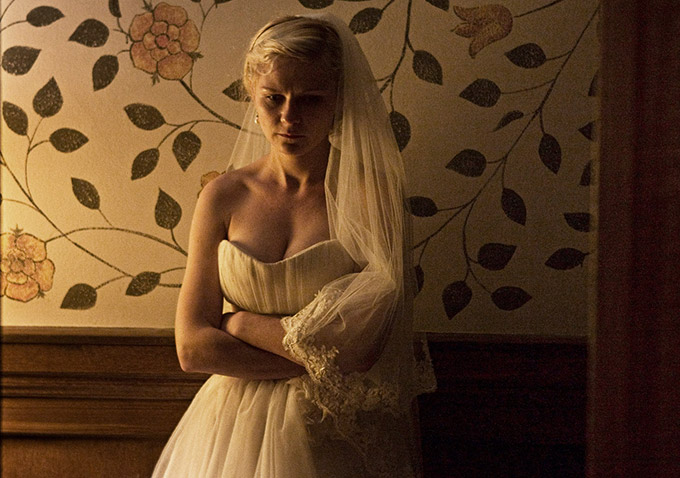Though I don’t generally consider myself to be on the wavelength of Lars von Trier (“Antichrist” and “Breaking The Waves” being the two exceptions), I will admit that the Danish provocateur has a considerable talent for conveying the sensation of depression through cinema. Nearly all his movies deal with or are about diagnosable unhappiness in one way or another; hell, he’s even made a "Depression Trilogy" in which characters struggle with unthinkable trauma and violence both emotional and physical. “Melancholia,” the second film in the aforementioned trilogy, looks at how clinical depression warps and perverts our perspectives in all manner of nasty ways — in many cases, until we no longer recognize ourselves or the ones we love. That very specific perspective on emotional decline is the subject of a pretty great new video essay from The Nerdwriter that looks at how von Trier’s film deals with what is perhaps his favorite thematic preoccupation.
READ MORE: Review: Lars Von Trier Confronts Depression Head On In The Grim ‘Melancholia’
The video, titled “Life Out Of Proportion,” is careful to reference the rapturous opening stretch of "Melancholia": an eerie fever dream of puny human forms juxtaposed against the vast swath of nature and space. It also addresses the movie’s middle stretch, which unfolds largely at a wedding reception, and also Alexander Skarsgård’s creepily blank performance as the new groom of Kirsten Dunst’s depressed bride. Aficionados of the director will probably be hip to some of the cultural references that the video addresses. One of the most enduring images is of Dunst in her wedding gown, lying in the grass, that went on to grace the film’s official poster, and was allegedly inspired by John Everett Millais’ “Ophelia,” a depiction of one of literature’s most renowned depressives. The video also draws an arguably inevitable link to Andrei Tarkovsky’s great “Solaris,” particularly in the pointed use of a musical refrain (Tarkovsky used Bach, von Trier used Wagner’s prelude for "Tristan Und Isolde”). As an avowed non-fan of Von Trier’s, it certainly made me consider the film in a different light, and I’m sure it will pose an even greater appeal to those who believe that the film is a masterpiece.
Relive the entrancing sadness of “Melancholia” with the video below.





